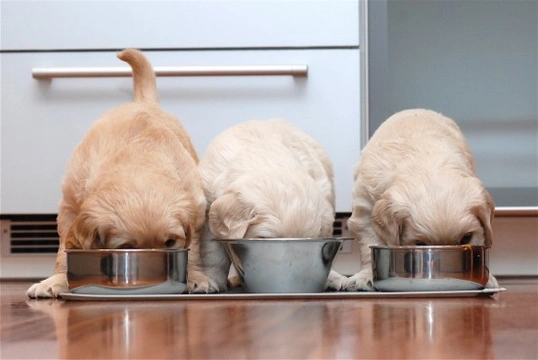
Ten Essential Tips for Dealing with Diarrhoea in Dogs
1. Know When to Call the Vet
Diarrhoea in dogs can often resolve with careful at-home care, especially if your dog remains energetic, with a good appetite. However, certain signs mean you should seek immediate veterinary attention for your dog’s health and safety. These include:
- An acute, severe onset of diarrhoea.
- Diarrhoea lasting more than a few days despite dietary efforts.
- Other symptoms such as vomiting, lethargy, or abdominal discomfort (notably the “praying position,” which can indicate acute pancreatitis).
- Noticeably pale, yellow, grey, or green stools, which can signal pancreatic or bile-related issues.
- Presence of bright red blood or mucous, suggesting colitis or possible digestive tract injury.
- Black, tarry stools (malaena), indicating bleeding higher in the digestive tract.
- Suspected ingestion of toxins, foreign objects, or contaminated water sources.
If you notice any of these symptoms, prompt veterinary consultation is critical for diagnosis and treatment.
2. Feed Small, Frequent Meals
While traditional advice often suggested fasting dogs with diarrhoea, modern veterinary guidance favours feeding small, frequent meals to aid digestive recovery. This approach helps provide essential nutrients and energy for healing the gut lining. Aim for 3-4 smaller meals daily, allowing the digestive system less work per feeding and aiding enzyme function.
3. Choose an Easily Digested, Low-Fat Diet
A bland, low-fat diet soothes the digestive tract and helps firm stools. Home-cooked meals such as white fish with boiled, mashed potato (without milk or butter) are gentle on the gut and provide a good alternative if food intolerance or allergies are suspected. Prescription veterinary diets or boiled chicken and rice are also excellent options but always consult your vet if allergies are a concern.
4. Avoid Overfeeding
Giving more food than your dog can digest can worsen diarrhoea. It's important to weigh your dog and food portions carefully, including treats and extras, to ensure you provide the correct amount without overloading the digestive system. Temporarily stopping treats during diarrhoea episodes helps support recovery.
5. Introduce Diet Changes Gradually
Sudden switches in diet often trigger gastrointestinal upset leading to diarrhoea. If a diet change is necessary during recovery, transition slowly over one to two weeks to let your dog's digestive system adapt without causing further stress.
6. Minimise Stress, Anxiety, and Excitement
Stress triggers physiological changes that can upset digestion, such as increased stomach acid production and faster bowel transit, often resulting in loose stools. Maintaining a calm environment and consistent routines can reduce diarrhoea related to stress.
7. Soak Dry Kibble When Reintroducing It
After feeding a home-cooked or prescription diet, reintroduce dry kibble gradually by soaking it in warm water for 20-30 minutes. This softens the kibble, making it easier for sensitive digestive enzymes to handle and reducing irritation.
8. Use Probiotics to Restore Gut Flora
Diarrhoea disturbs healthy gut bacteria. Supplementing your dog’s diet with a veterinary-approved probiotic can rebuild beneficial bacteria and support digestive health. Avoid dairy products like regular yogurt, as many dogs lose lactase production after puppyhood, and dairy can worsen symptoms.
9. Consider Fibre Carefully
Adding fibre can help regulate bowel movements, but not all fibre is equal. Bran is commonly used but hard to dose and can sometimes worsen diarrhoea if used excessively. Opt for pet-formulated fibre supplements providing a balanced soluble and insoluble fibre mix for safer, more effective results.
10. Manage Suspected Food Allergies or Intolerances
- Consult your vet to exclude other causes and get tailored treatment.
- Review all foods, treats, chews, and human foods given, as intolerances may develop suddenly.
- Remove common allergens such as wheat, beef, soya, and dairy.
If your dog is on a hypoallergenic diet but symptoms persist, your vet may recommend a novel or hydrolysed protein diet or a strict, short-term home-cooked elimination diet under supervision.
Following these practical, vet-advised steps promotes a gentle, safe recovery from most diarrhoea cases at home while ensuring timely professional care when needed. Your dog’s wellbeing and comfort during recovery are paramount.



